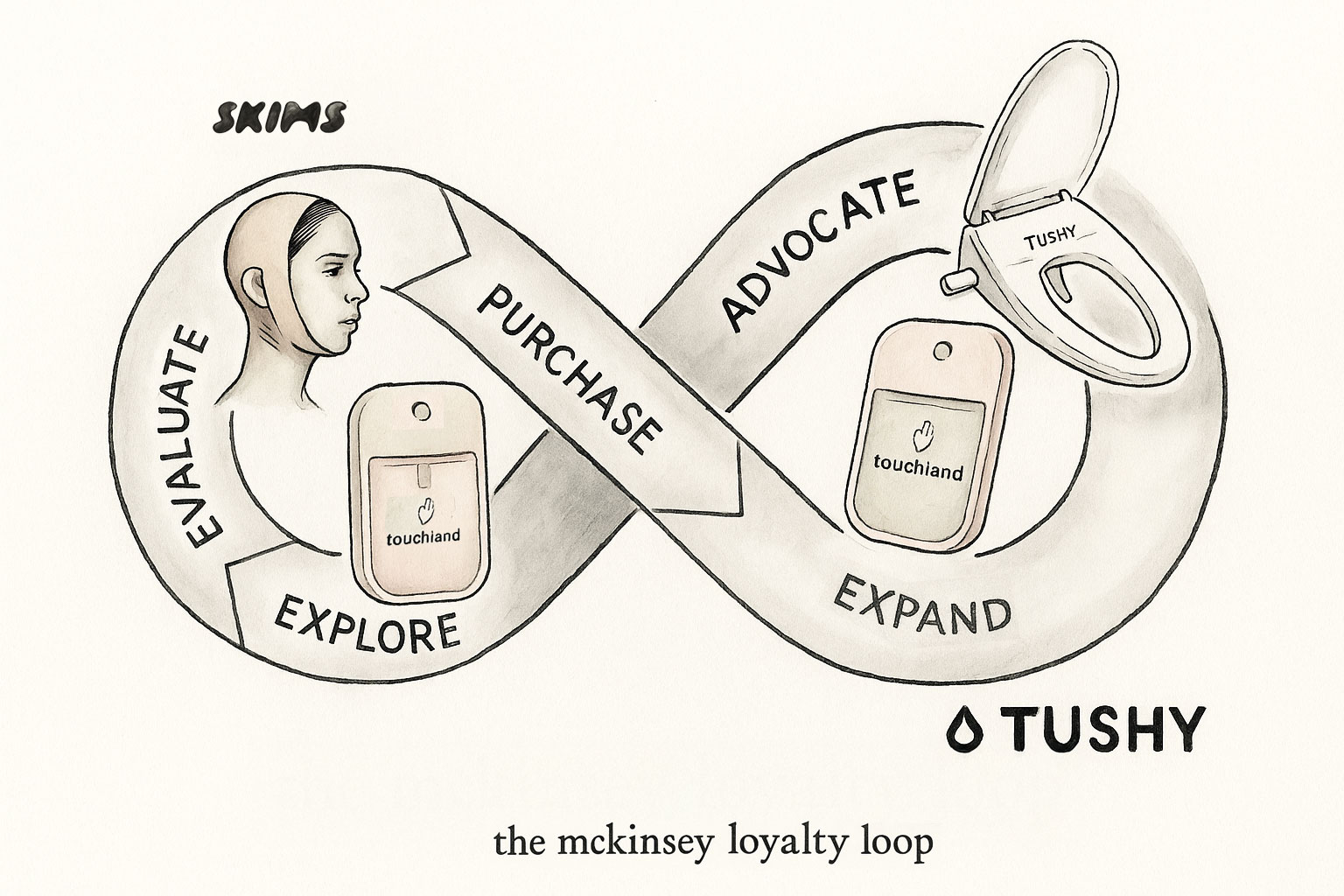
SKIMS Face Wraps (& Other Signs the World Has Lost Its Mind)

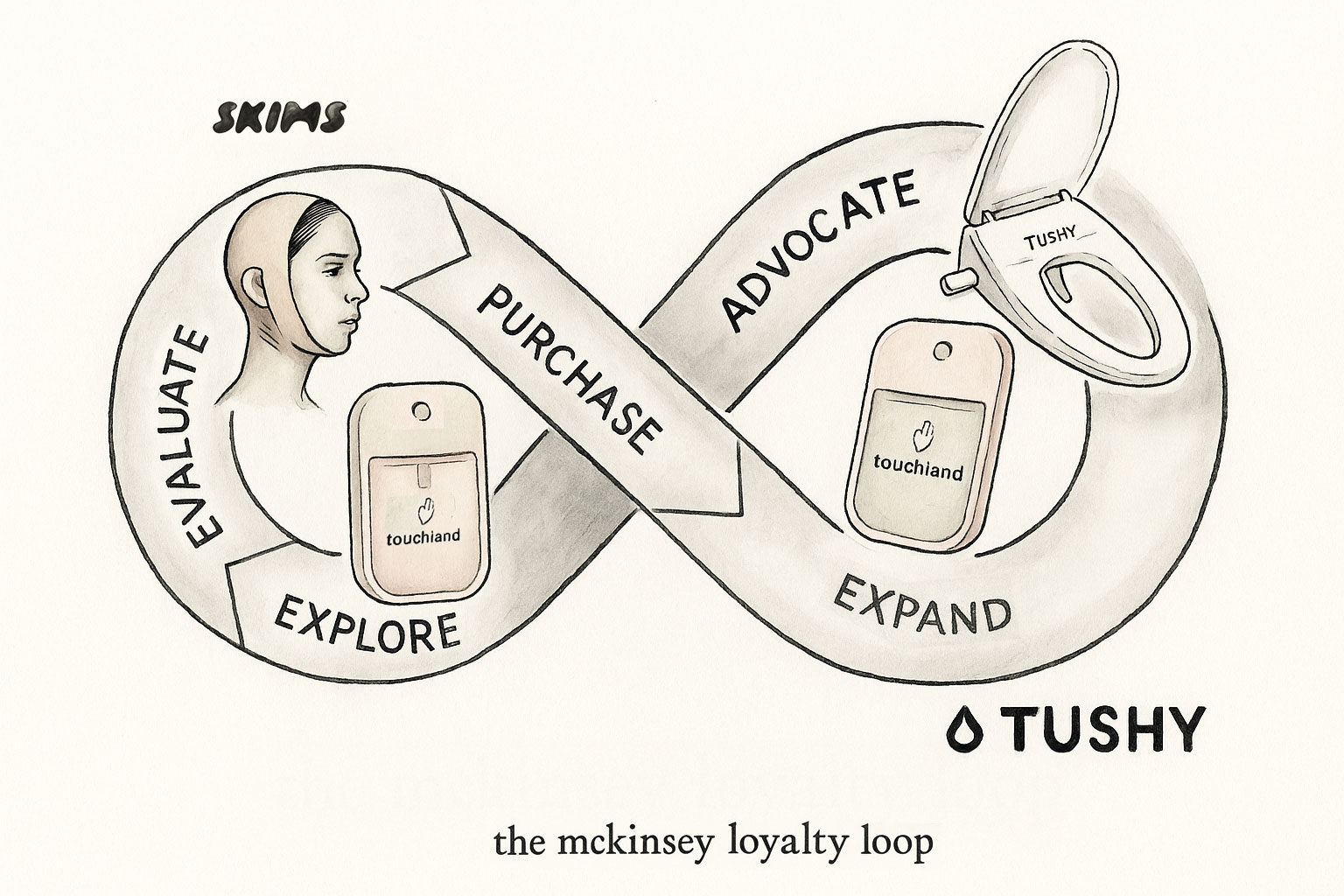
Welcome to Friday, futurists.
The rules of loyalty used to be simple: decent product + points = repeat customers. But in today's retail landscape hellscape, loyalty is less about punch cards and more about surviving the TikTok dupe apocalypse.
The brutal stats: 🔥 38% of shoppers are only loyal to 5 or fewer brands
💀 Gen Z treats brands like disposable Shein hauls
⚡ TikTok dupes are murdering brand allegiance daily
But here's the plot twist: 40% of consumers still value brands for reasons beyond being the cheapest option on the shelf.
Our Set the Table course breaks down how to actually win:
📍 Product - Make something people actually want
💰 Price - Don't race to the bottom
🎯 Brand - Stand for something (anything!)
✨ Experience - Don't make buying from you suck
Brands like SKIMS (yes, the face wrap people), Touchland, and TUSHY are turning one-dimensional funnels into loyalty loops that actually work with proven strategies.
The uncomfortable truth? Retention isn't a metric you hit once and forget. It's a relationship that requires the same energy as maintaining friendships with people who actually matter.
— Phillip
🔮P.S. Want to see your ideas in hardcover print? Our 2026 Journal is hunting for the smartest voices in commerce to tackle these questions: Is brand heritage a superpower or a death sentence? Is time the most valuable asset or is it the fire in which we burn? Submit your essay, analysis, critique, or hot take and join the conversation that'll define the next era of retail. Get featured here.

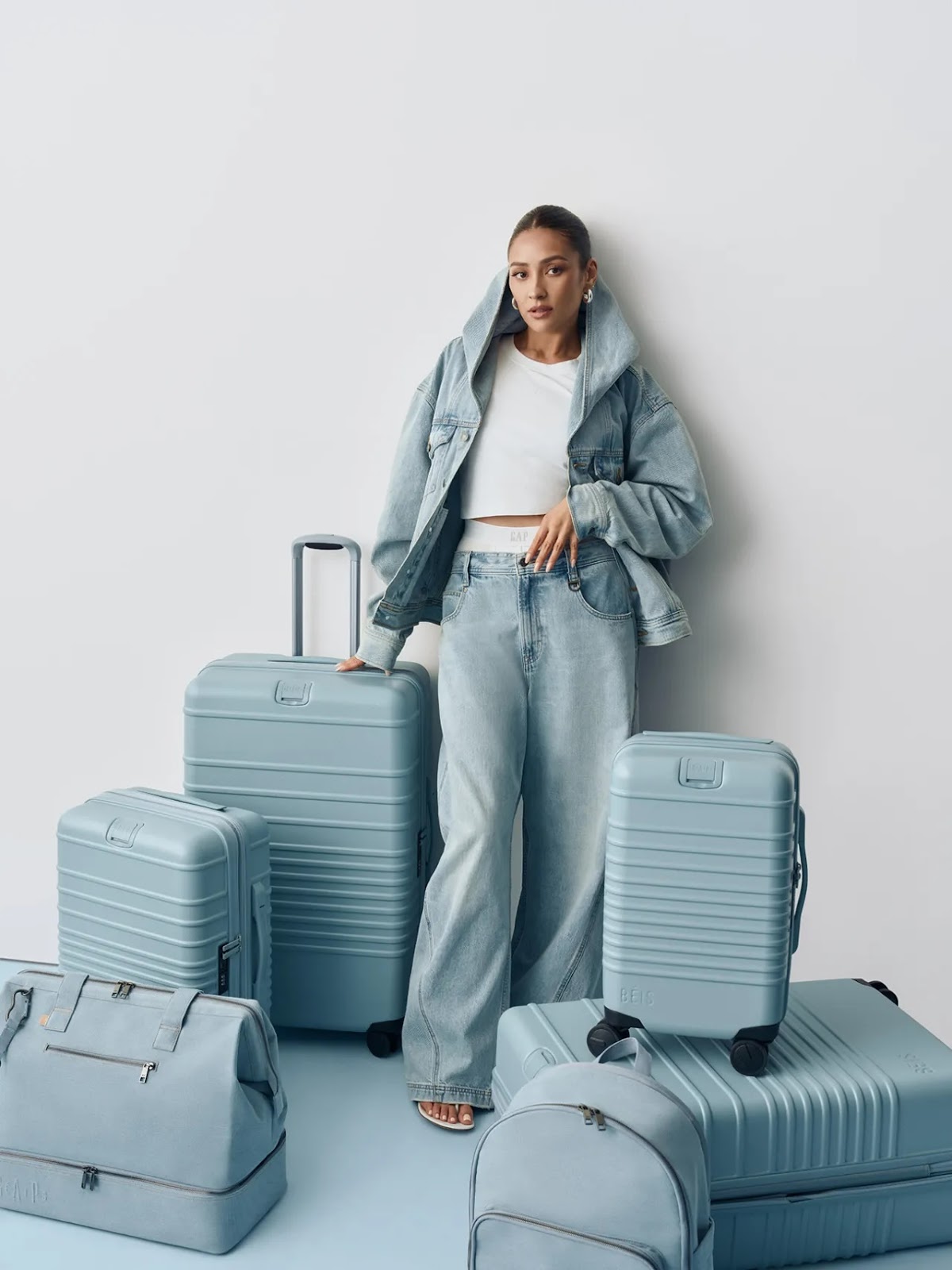
Because Nothing Says 'Adventure' Like Mall Denim. Gap is linking up with BÉIS, the stylish, function-forward travel brand founded by Shay Mitchell, to drop a limited-edition capsule collection of apparel, bags, and denim-inspired luggage. The line will be available on both brands’ eCommerce sites and in 60 Gap stores worldwide. This is far more than a cute collab: it’s a calculated growth effort that benefits both parties.
For Gap, it’s part of a long-term reinvention that is starting to pay dividends for the brand’s cultural relevance. BÉIS brings a younger, very online fanbase and community-fueled commerce strategy that can bolster Gap’s credibility. For BÉIS, it’s all about retail scale and getting the brand in front of a larger group of Millennial consumers.
Statista predicts that the global travel market will reach $2.27 billion by 2029, which opens up significant revenue opportunities for brands in relevant product categories. That especially includes travel gear that offers both utility and style.
Cleats to Commerce. Walmart’s lacing up for more than price rollbacks. It’s going full throttle into the culture of sport. Through a multi-year partnership with MLS and Leagues Cup, the retail giant is betting on the commerce of fandom. With plans to activate across stadiums, social feeds, and Walmart.com/Soccer, the retailer is chasing a young and diverse fan base that is motivated to support their favorite teams through merch. The retailer’s vision for a multi-platform retail experience, including creator-led storytelling, exclusive merch, and IRL experiences at community activations and rivalry matches, confirms that commerce and sports go hand in hand.

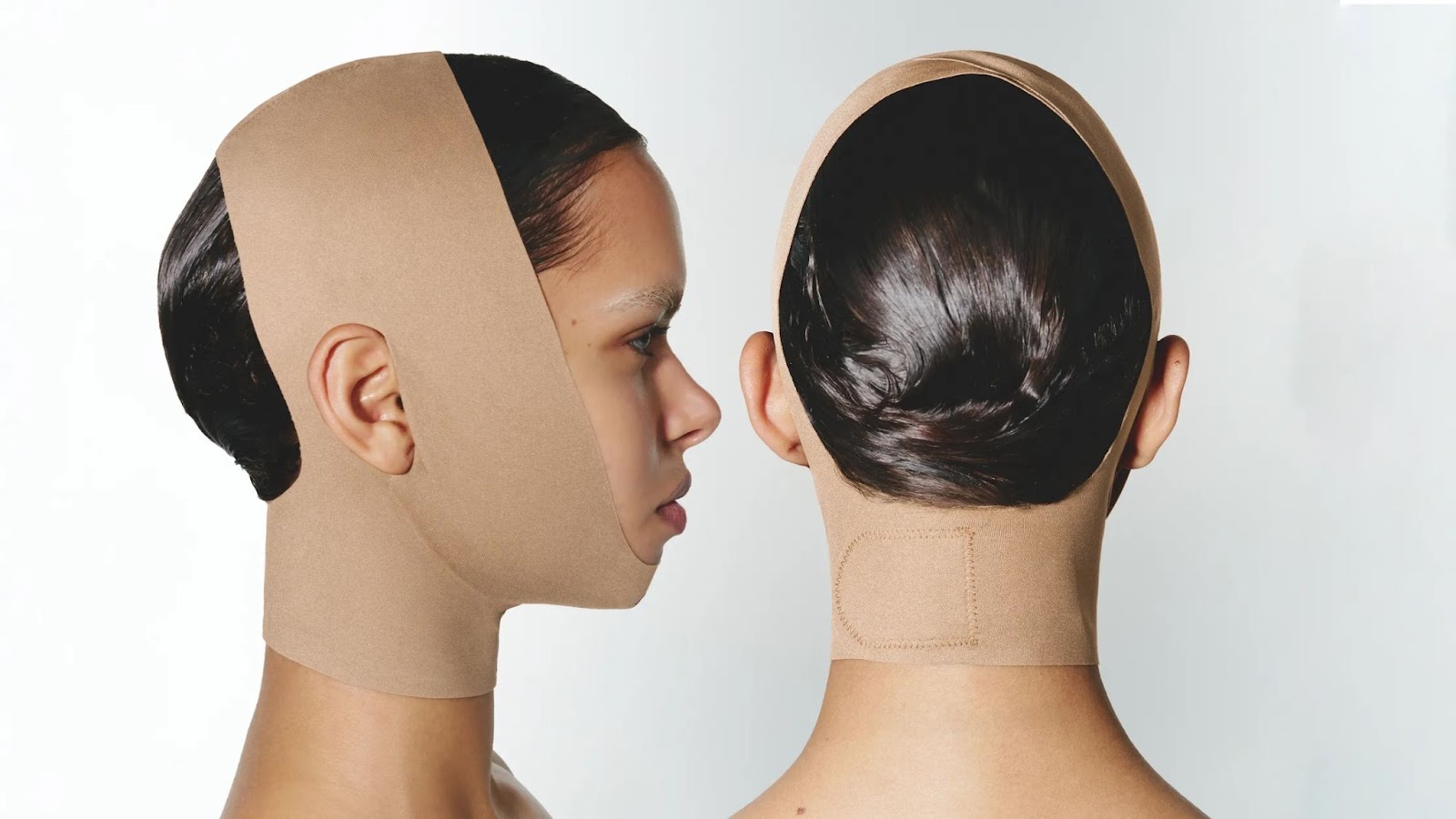
The Buccal Stops Here: SKIMS Face Jail Edition. SKIMS has sent the social media sphere atwitter after launching its Seamless Sculpt Face Wrap, a piece of shapewear for your face. Built from the same compression fabric that made customers loyal to the brand’s bodysuits, the face wrap supposedly helps shape the jawline, reduce puffiness, and mimic a mini facelift while you sleep.
The release is founder Kim Kardashian’s way of adding to the “Morning Shed” trend, which has Gen Z and Millennial consumers sharing how they “shed” their maximalist wellness routines, which include debatably effective tools like chin straps, mouth tape, masks, and more. While there’s ongoing debate around how effective such robust routines are, it sure is shaping social discourse: #Morningshed videos have been viewed millions of times on TikTok, and the hashtag has inspired coverage from The Guardian, Vogue, and other media outlets.
Kardashian and SKIMS are doing what they’re doing best: fueling the social media fire and monetizing on it every step of the way. Who cares whether people say it’s screaming Hannibal Lecter when you’re getting money in the bank?
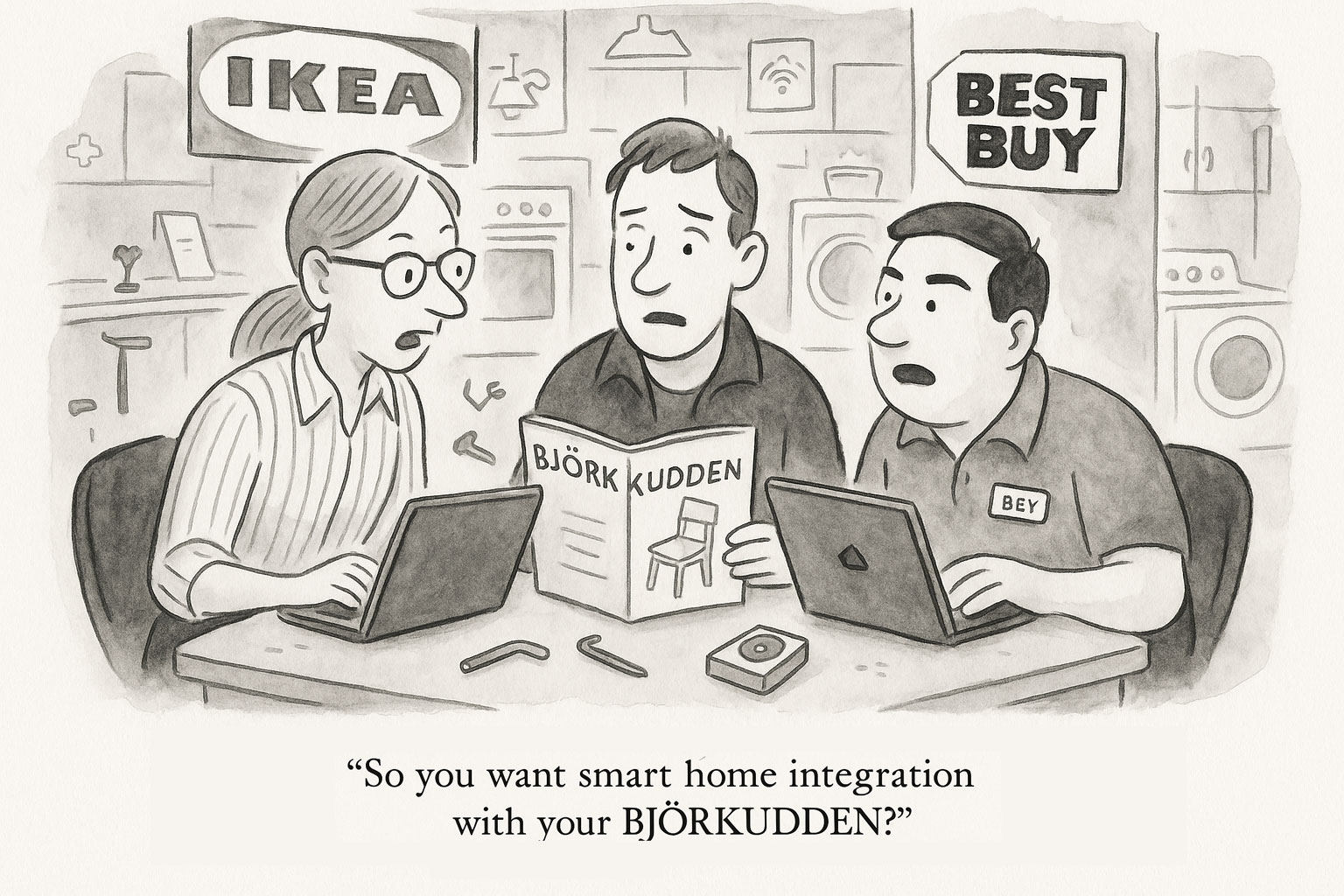
Retail’s New Kitchen Sync. In this week’s unexpected retail partnership, Best Buy and Ikea are making “Do It Yourself” a little more do-it-for-me. The two retailers are launching 1,000-square-foot kitchen and laundry mini-showrooms inside 10 Best Buy stores across Texas and Florida, where shoppers can design spaces with Ikea staff and then pair them with appliances from Best Buy.
This "shop-in-shop" model is a creative way to tackle the financial pressures squeezing Best Buy right now: tariff hikes, a weak housing market, and tepid tech demand have all eroded sales. Partnering with Ikea is a play aimed at driving foot traffic and getting a share of sales. It also reflects a broader shift in retail towards consultative commerce, where consumers receive high-touch service and support that aligns with their unique buying goals and needs.

Big Kombucha Swallows Smaller Kombucha. Ah, the circle of (fermented) life. Generous Brands, parent company of Bolthouse Farms, Evolution Fresh, and SAMBAZON, is buying Health‑Ade Kombucha to become a dominant force in the functional beverage market. Adding Health-Ade and its $250 million in retail sales to the mix, Generous Brands’ product portfolio will approach $1 billion in total sales.
Kombucha is a white‑hot subcategory within the functional beverage market: the US market alone surged to $1.62B in 2024, and is projected to hit $5.1B by 2033. The larger probiotic drinks market, which we all know is top-of-mind for power players like Pepsi, was poised to exceed $49.5 billion in revenue globally in 2024.
The Frictionless Fiction. After a wave of mobile order-only locations stripped stores of their soul (and seating), Starbucks announced that it would phase out pickup-only formats in 2026 and invest in 1,000 "uplifted" cafés across North America. The goal is to effectively merge tech-enabled speed with the cozy, community vibes that “burrito boy” (what r/starbucks calls CEO Brian Niccol) claims customers actually want.
Starbucks, once the poster child for “frictionless convenience,” now admits it may have leaned too far into app-driven minimalism.
The company is working on a Coffeehouse of the Future prototype, which will have 32 seats, a drive-thru, and cost roughly 30% less to build. A far cry from the bathroomless 3D-printed box launched earlier this year. A smaller version is under construction in NYC and will open over the next few months.











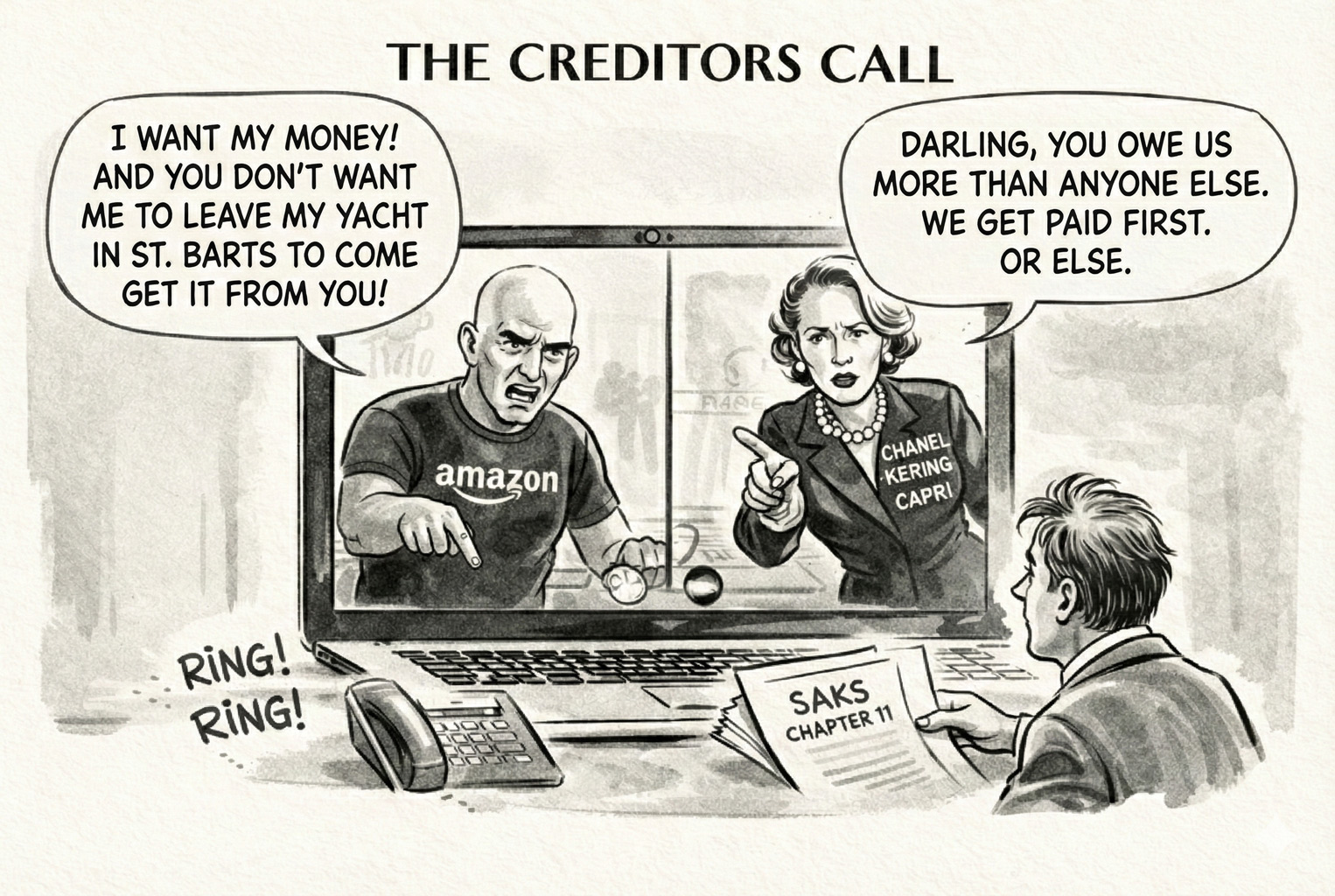
.svg)
